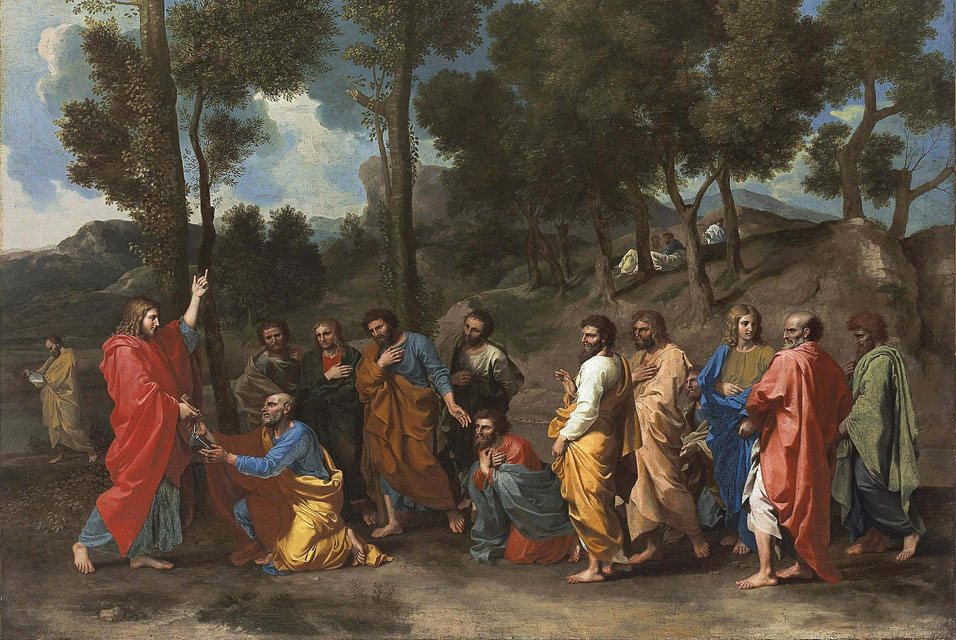By Vir Christi
What the Heck is Celibacy?
The modern world is hyper-focused on human sexuality in a way unprecedented by any prior generation. Helped by the technological boom, people can now click a button and access different media that objectify the human person. In addition, a growing number of people are beginning to view their sexual inclinations, or “sexual identities,” as integral to their identity as a person. From our culture’s perspective, any sexual pleasure is an ultimate good, and denying oneself of it to become celibate makes no sense.
When the Catholic Church uses a word like “celibacy,” the world’s reaction is immediately hostile. Indeed, there is even hostility to it within the Church herself. A lot of the time, the first word people think of is “restrictive.” The world, and even some Catholics, see celibacy as a ridiculous imposition that the Church puts upon some of her members to exercise excessive control over their lives. Some people have even proposed that allowing priests to marry would have prevented the priest sex abuse scandal. All of that opposition derives from a lack of understanding as to what celibacy is.
The Catechism of the Catholic Church states, “…accepted with a joyous heart, celibacy radiantly proclaims the Reign of God” (CCC 1579). Celibacy is a free choice by its adherents to refrain from entering into the covenant of marriage, and the sexual intimacy contained therein, for the purpose of preparing for the Kingdom of God. It is the surrender of an immediate good—sexual union between husband and wife—in anticipation of a future good in the Kingdom of Heaven.
So Why Practice Celibacy?
This question is actually very easy to answer: because Jesus Himself practiced it! During His life on Earth, Jesus never married; He gave His life entirely to the mission of proclaiming the Good News. There is a reason why through the Pauline epistles, the Book of Revelation, and many other instances in the New Testament the Church is referred to as the Bride of Christ: Jesus refrained from entering into marriage, by which He would have given Himself totally to one woman, so that He could give Himself totally to all people through the Church. Our Lord lived His life as an example for those who would follow Him. His living of the life of celibacy was not meant to negate the validity of marriage, but rather to give heightened emphasis and reverence to the life of the celibate.
Jesus explains the significance of celibacy to His disciples clearly in the Gospel of Matthew. In Chapter 19 of Matthew, we find Jesus giving instruction to His disciples regarding how the Church is to treat divorce. Jesus makes some pretty strong statements about the importance of marriage, including that anyone who divorces his wife and then remarries is guilty of adultery (Matthew 19:8-10). The disciples are incredulous at the severity of this teaching, and Jesus uses this as an opportunity to emphasize the importance of the different vocations. In addition to not backing down from His stance on marriage, Jesus also tells them about the blessedness of the celibate life: “For there are eunuchs who have been so from birth…and there are eunuchs who have made themselves eunuchs for the sake of the Kingdom of Heaven” (Matthew 19:12). Some are called to live the celibate life after the example of Our Lord.
Celibacy provides spiritual freedom to pursue an intimate relationship with the Lord in a particular way. Saint Paul says in his first letter to the Corinthians that both the unmarried man and unmarried woman are anxious about the things of the Lord, rather than their spouse (1 Corinthians 7:32-34). This means that when a man or a woman is married, they encounter the Lord through their spousal relationship. They should have their focus on the needs of their family. In celibacy the unmarried person is focused on a different kind of relationship with the Lord, and does not have the obligations that married people have. Married people are living their vocation, too—just not in the same way.
Think about parish priests in the Latin Church, and how busy they are. The parish priest gives his undivided attention to the people in his parish: going to the hospital to anoint the sick, witnessing marriages, officiating at baptisms, overseeing various renovation and construction projects the parish might undertake, and other functions. Priests are so busy, and that is without being married! Now imagine those same priests had wives and children to look after. They would have to divide their time between their family and the Church, and would be less free to attend to the spiritual needs of their flock. In the life of celibacy, they are given the freedom to live a fuller life of service for their people. And that is just one great example of the joyful charity that celibacy brings about.
Wait a minute, you might be saying. If children are such an amazing, incredible gift from the world, why would anyone want to choose celibacy? Yes, it draws people closer to God and makes them ready for eternal life, but doesn’t that mean their life is going to feel lonely between now and when they die? Hardly! Jesus tells His listeners that no one who gives up houses, brothers, sisters, children, etc., will go unrewarded in the next life…or this one (Mark 10:29-30). Those rewards don’t just start in Heaven; there are riches Jesus pours out upon those who practice celibacy now. Priests may not have biological children, but they have hundreds of spiritual children. They gain the Bride of Christ, the Church. And most importantly, they are fortified with all of the graces they need to live out that priestly calling and be conformed immediately to the Person of Christ.
Is My Vocation Inferior if I’m Called to Marriage?
The short answer to this question is no, your vocation is not “inferior” if you are called to marriage. Vocations should not be thought of from the standpoint of one being better or fuller than the other. Celibacy lived out in the priesthood, religious life, and consecrated single life points into the future to what we are destined to be in the Kingdom of God in the next life. Married life points now to the unity of the life of the Trinity here on Earth, which we are all also called to emulate. Think of celibacy as people starting now what we’ll all be doing in eternity; that doesn’t make them further ahead than everyone else, it just means that they feel called to enter into that relationship now.
Married couples and celibates need one another. One vocation is not “more” or “less” holy than the other; they are two different vocations that support one another. Good priests, religious, and consecrated single people spiritually feed those around them, and strong married couples with their families are a bulwark upon which the celibates can rest, knowing that a good community has their back. They are the two pillars of the Church equally supporting one another.
Celibacy as Radical Response
So why bring up celibacy in the world today? Celibacy is a radical response to the hyper-sexualizing of the world that I talked about at the beginning of this article. The world says, “Only in sex and sexuality can you ultimately find pleasure and happiness,” but celibacy responds, “In God alone does my soul find fullness.”
Radically lived out celibacy rejects the false idol that the world has made out of human sexual relations, pointing to God as the source of all joy. It says that life with God in eternity is so desirable, it is worth forsaking a powerful earthly joy now for the promise of the fullest sense of that joy possible in the world to come. If God told you tomorrow that you could enter Heaven immediately, wouldn’t you want to do that? Celibacy is the way in which people can begin living immediately the way we’ll all (hopefully) be spending eternity, and is the “yes” to God’s offer of living Heaven now.

Vir Christi
Vir’s heart has been on fire for the Church from day one, and he dreams of the day when Constantinople will be a city again. He has a competitive drive satiated by sports and board games, but is also just as happy to sit down and read a good book for hours on end.






0 Comments